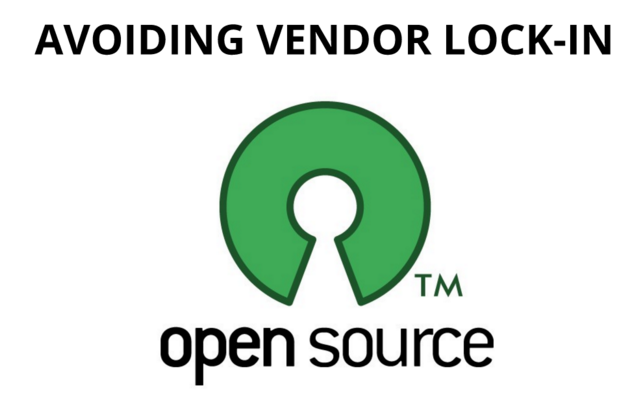A recent study shows that 66% of businesses consider open source solutions over traditional proprietary software – See article. “http://www.slideshare.net/blackducksoftware/2015-future-of-open-source-survey-results/16-OPEN_SOURCE_IS_THEDEFAULT_APPROACHFOR”
On the other hand, there are plenty of vendor-locked software companies who claim to have the “secret recipe” for the enterprise digital transformation. In reality, these companies can slow down innovation altogether, and are currently under the risk of open source solutions more than ever before. Their claims about open source tools are nothing but far-fetched myths most of the time.
Myths about Open Source

Myths Busted
Security
Linus’s Law states that “given enough eyeballs, all bugs are shallow.
Open Source software is continually being worked on by thousands of people from the open source community at the same time to find and fix any apparent vulnerability that may affect the software as a whole. Solutions come around fast as more talented people looking and repairing bugs. While on the other hand proprietary software companies have very small team that solves these issues as their job.
Support
Open source has continuous support from related communities. What’s more, many companies, such as Redhat, offer dedicated paid support to these open source software solutions. There is also a very responsive support system where their revenue is focused, and you see support typically comes instantly.
Reliability
For companies that need an extra level of insurance, there are options for commercial Open Source software, which goes through extensive quality checks before being released.
Cloudera is a good example of a commercial open source software source; they release their Hadoop distribution through extensive quality assurance tests.
Why Open Source
Innovation and Speed
No matter who you are, most of the smartest people work for someone else (Bill Joy, Sun Microsystems)
Being under the mercy of the vendor’s priorities, what capabilities they will deliver, and being locked into antiquated technologies will slow down your innovation. On the other hand, with open source, you own your own destiny, and have access to interact with giant partners outside the walls of your organization. This allows you to accelerate your innovation, and meet the demand of your customers and your business. If you are looking for new capabilities, either you ask for the development to get done, or you develop it yourself.
Reduce Cost
Low cost and/or no cost open source software is why most opt for the choice in the first place. It’s a great way to get work done without having to spend a fortune on software licenses.
Quality
In the open source community, you have access to a larger pool of the smartest talents in the industry to work with which enables access to greater innovation. Fast bug fixes, new updates always available instantly. This is because of the nature or open source itself. Open source software have dedicated communities where people would be trying to fix bugs and security threats, just because it affects them as much as anyone else. A great example when we talk about quality is the scoring system that Puppet started where every module is assigned a quality score by the users of the module.
https://puppetlabs.com/blog/new-ratings-puppet-forge-modules
Why Should I Trust Open Source
Industry giants such Google, Facebook, Netflix, and powerful organizations such the Department of Homeland Security, and even banks as big as the Bank of America use open source software – which adds to its credibility. It also ensures to the user that the same companies would also be involved in fixing and improving the software.
It’s no secret that many closed source vendors like Oracle or IBM admit to use and partner with Open Source companies such as Apache, Hadoop and Cassandra. Open Source is undeniably a valuable resource.
We strongly believe that by being in the social and connected world we live in today, collaboration is the best for fast and effective innovation. Maybe you cannot go ‘open source’ in all areas, but open source should truly be the first option for your business if it’s available.


2 thoughts on “Avoid Vendor Lock-In – Run Enterprise IT on Open Source”
Your content is excellent and the YouTube video on the common myths is perfect! In fact, I am trying to get permission to use it in an internal company newsletter that promotes open source first. I plan to watch this site and look forward to more articles/videos and hearing back about gaining permission for use of your video.
Thank you for your comment. Please feel free to use the content
Comments are closed.